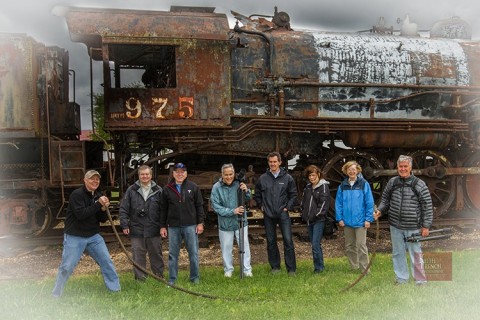Why you should be attending Photography Workshops (Part 1)
Curious about taking photography workshops ?
"There are five important things for living a successful and fulfilling life: never stop dreaming, never stop believing, never give up, never stop trying, and never stop learning."
― Roy Bennett
Do you know what the Scheimpflug principle is? Do you know why reciprocity failure matters in photography? Do you even know how to pronounce Scheimpflug? No? Well, in fairness, these are two things in photography that are pretty obscure and in honesty there's very little chance that either of these things will make any difference to you or your photography. But the information is out there if you are curious.
Ok so what's my point? The point is that photography is a MASSIVE subject and even if you dedicated a whole lifetime to the study of photographic technique, it's unlikely you'd know everything about the subject. Reciprocity Failure is pretty much exclusive to film, so if you started your photography in the digital age you would never have used it before. But… BUT!!!! One day you may decide to start using that old film camera you bought at the antique store. Suddenly a new "rule" will come into play.
Technology has made photography even more complicated in some instances, programs such as Photoshop have opened up whole new areas and allowed us to do things with our photography we never dreamed possible. Once we take the time to learn a very complicated piece of software. However at the same time the newer computer driven cameras take much of the guess work out operating the device so visionaries can be creative.
One of the real joys of photography as both a profession and a hobby is that there is always something new to learn and try… You may be an expert level wedding and social photographer but know absolutely nothing about landscape photography.
Some ill informed individuals think that because a certain photographer is good in one area of photography, they are good in all areas. That is simply not the case. I have seen many examples as a professional photo lab owner where individuals crossed areas of experience and bombed. BADLY! I still remember the crying mom, whose husband took charge of finding a photographer for their daughter's wedding. The husband's friend shot for Sports Illustrator and he was very accomplished. But his wedding photography was severely lacking. While I endured the crying mother, I couldn't help wonder why on earth this photographer even took the job. To be fair, maybe he tried to talk his way out of it. That I don't know. Point is, being nearly brilliant on one area doesn't make you accomplished through and through as a photographer. However your learning curve can be much flatter especially with a small amount of guidance and direction.
The next several posts are going to be about why I feel you should take photography workshops and why I started hosting them 7 years ago. Here's the first reason.
Why Workshops though?
Photography is part science and part art. It is one of the things that attract so many people to it. Because of this mix, photography has always been quite a social hobby… Camera clubs, photography workshops, meet-ups, even small groups of friends who make the effort to just go out and enjoy photography together…
Why? Because this mix of both art and science means that the science aspect has rules that need to be adhered to, while the art aspect means that these rules need to be broken. Technical types love the ability to learn the science and apply it in the manual functioning of the camera but some of them suffer from the lack of creativity. Artists love the fact that the computer in the camera handles the science and they just need to let the creativity flow then point and shoot. Some suddenly realize they are asking more of the "tool" than is capable in the automatic settings. Most are somewhere in the middle of that and no 2 people are the same. Workshops nurture both. Tech types are shown creative images and they figure out how to shoot them, artists find the images and the they are given expertise on how to capture it.
If you regularly attend workshops you are constantly pushing the boundaries of what you can do with your camera… Gaining inspiration from both the new techniques you've learned and the people that you meet.
Many of these workshops will be attended by a diverse range of photographers… You might find yourself in a room with a photographer who has been practicing her art for 50 years, or sitting next to a 20 year old who only picked up his camera a year ago.
You can learn from both of these people and they can learn from you. Of course the whole point of a workshop is that you can ALL learn from the workshop host who is running the course. Let me be open as well, as a host I have learned much from those who have paid me to teach them. Photography Workshops are an open venue for learning, exchanging, and growing your photography passion.
When you subscribe to the blog, we will send you an e-mail when there are new updates on the site so you wouldn't miss them.



Comments 2
Hello,
My daughter is 13 and she is doing an interest in photography. Looking to get some ideas of where she can take classes out go to workshops. Any idea would be great.
Hi Jeff, That's exciting to hear. I do not know where you are in the USA, but I do lessons one-on-one here in Elgin, IL For her age I would recommend a few one on one sessions to greatly aid in the familiarity of the camera and find out of she's a technical photographer or an artistic photographer. Or to some degree, both. If you are not near me, you may want to investigate a website called lessons.com. There may be photographers in your area that have a profile listed. You can fill out your wishes and see if any of the photographers reply. My next one day workshop is May 6th, in Union Il, and we'll be teaching Macro ( up close) and textures. It's a workshop about visualizing your subject and setting the shot. It's not as much about technical as it is about style and art.